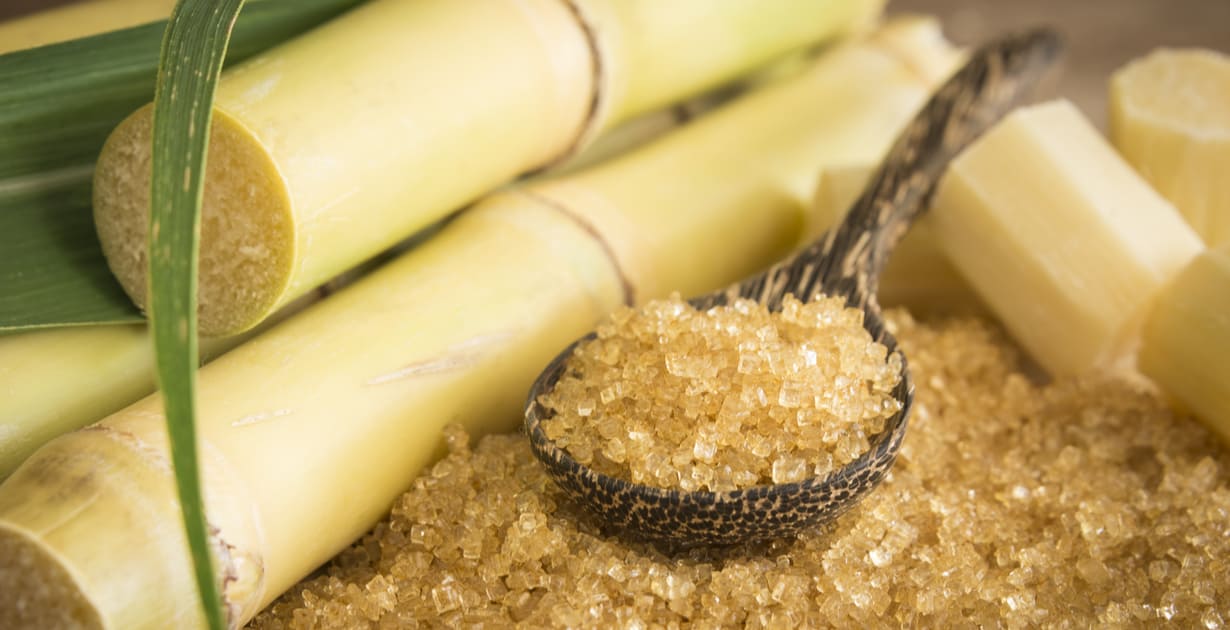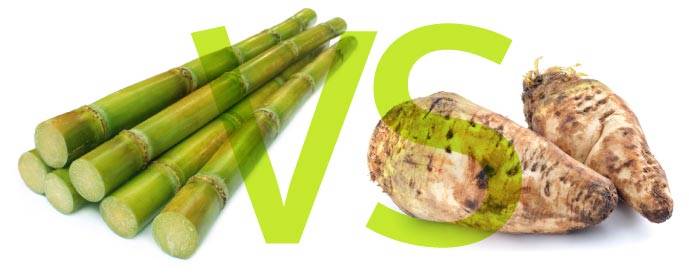The Journey of Cane Sugar Processing: From Harvest to Crystals
The Journey of Cane Sugar Processing: From Harvest to Crystals
Blog Article
A Comprehensive Review of the Health And Wellness and Economic Implications of Cane Sugar Processing on Regional Neighborhoods
Walking stick sugar handling plays a pivotal role in shaping the economic landscape of regional neighborhoods, providing employment chances and stimulating supplementary markets. The health ramifications linked with high sugar intake can not be ignored, as they contribute to rising prices of excessive weight and diabetic issues.
Economic Advantages of Walking Stick Sugar Processing
Cane sugar processing supplies considerable financial benefits that prolong past the prompt agricultural market. The cultivation and handling of sugarcane develop many work opportunities, from farming to production and circulation. This work generation not only sustains neighborhood economic climates yet additionally cultivates neighborhood advancement by offering secure earnings sources for family members.
Furthermore, the sugar market promotes ancillary businesses, including transport, equipment supply, and product packaging solutions (Cane Sugar Processing). As these markets grow, they contribute to a more durable financial framework, improving general neighborhood strength. The export potential of refined cane sugar even more intensifies financial benefits, placing regions as competitive gamers in international markets
Financial investment in contemporary handling centers can cause enhanced performance and efficiency, therefore reducing waste and optimizing source usage. This shift not only benefits the neighborhood economy however also supports sustainability efforts by reducing ecological impacts.
Moreover, the income produced from cane sugar processing can be reinvested in local facilities, education and learning, and medical care, advertising alternative area growth. Generally, the economic benefits of walking stick sugar handling are multifaceted, supplying a structure for withstanding prosperity in agricultural regions.
Wellness Dangers Linked With Sugar Usage
Excessive sugar consumption presents considerable health and wellness risks that require significant interest. High intake of sugarcoated, especially from refined drinks and foods, has been linked to many health difficulties. Among one of the most pressing concerns is weight problems, as sweet diets add to an increased caloric consumption without providing necessary nutrients. This unwanted can result in metabolic problems, including kind 2 diabetes, which has come to be progressively widespread in both youngsters and grownups - Cane Sugar Processing.
Moreover, high sugar usage is related to cardiovascular illness. Elevated blood glucose degrees can lead to insulin resistance, a forerunner to different heart-related issues. In addition, sugar can have damaging effects on dental health, causing tooth cavities and periodontal disease, as bacteria in the mouth thrive on sugar, generating acids that erode tooth enamel.
Moreover, emerging study suggests a potential link in between high sugar intake and mental wellness disorders, such as anxiety and anxiousness. As communities grapple with these health and wellness dangers, it comes to be important to advertise understanding and urge much healthier nutritional selections. Addressing sugar consumption is crucial not just for private health and wellness but likewise for the general well-being of local areas, stressing the requirement for detailed public wellness approaches.
Ecological Effects of Sugar Production
Frequently overlooked in discussions about sugar's implications is the substantial environmental influence of sugar manufacturing. The cultivation of sugarcane often necessitates considerable land use, bring about deforestation, loss of biodiversity, and disruption of regional ecosystems. The conversion of forests and marshes right into sugar plantations can lead to habitat destruction, harmful various varieties and modifying ecological balance.
In addition, sugar manufacturing is resource-intensive, consuming considerable amounts of water for watering. This can bring about deficiency of regional water sources, detrimentally affecting both farming techniques and neighborhood accessibility to tidy water. In addition, making use of chemical plant foods and pesticides in sugarcane farming can add to soil destruction and water air pollution, as runoff from these chemicals gets in nearby rivers and lakes, influencing aquatic life and human wellness.
The ecological impact prolongs to the processing phase, where energy usage and waste generation further exacerbate environmental issues. Air air pollution from shedding sugarcane areas, together with greenhouse gas exhausts, contribute to climate modification. Thus, the environmental implications of sugar production warrant serious consideration, prompting stakeholders to embrace even more sustainable practices to minimize these negative impacts on local environments and areas.
Work Development and Area Growth
The environmental challenges postured by sugar manufacturing are often reversed by its potential for economic advantages, specifically in work development and community development. The walking stick sugar industry offers as a significant resource of work in many backwoods, giving work across different skill levels, from farming labor to handling and distribution duties. This employment not only sustains individual families however also adds to the general financial vigor of regional areas.
Moreover, the establishment of sugar handling centers boosts secondary organizations, such as transport solutions, equipment supply, and maintenance service providers. Source As these organizations thrive, they develop extra tasks and reinforce local economic climates. The profits created from the sugar market likewise results in raised tax obligation earnings, which can be reinvested right into area solutions such as education and learning, medical care, and framework growth.
Furthermore, the sugar industry commonly engages in area advancement efforts, such as sustaining neighborhood schools and health programs, thereby boosting the quality of life for homeowners. By fostering solid area ties and promoting economic development, the walking stick sugar processing industry plays an essential duty in uplifting local populations, making it a vital part of sustainable growth techniques in sugar-producing areas.
Balancing Health And Wellness and Economic Growth
In browsing the complexities of walking stick sugar handling, an essential obstacle hinges on stabilizing health and wellness considerations with economic development. The sugar sector considerably adds to his response regional economies by generating work, stimulating related fields, and enhancing tax incomes. Nevertheless, the health implications associated with excessive sugar usage can lead to chronic diseases such as obesity, diabetes mellitus, and cardio concerns, which can concern public wellness systems and decrease labor force productivity.

In addition, regulatory frameworks can play a critical function in directing industry practices towards even more health-conscious and sustainable strategies. By promoting cooperation between government bodies, health and wellness organizations, and the sugar sector, areas can navigate the duality of wellness and financial development, making sure that the benefits of walking cane sugar processing are equitably shared while focusing on public health and wellness.
Verdict
To conclude, the processing of cane sugar provides both substantial economic advantages and remarkable health and wellness risks try this for neighborhood neighborhoods. While it promotes task production and promotes regional growth, the connected health problems, specifically regarding obesity and diabetes, necessitate a cautious balancing act. By promoting liable usage and investing in neighborhood education and sustainable methods, it is feasible to take full advantage of financial advantages while reducing unfavorable health and wellness results, thus guaranteeing a healthier future for regional populaces.
Furthermore, sugar can have detrimental effects on oral wellness, resulting in cavities and gum tissue disease, as bacteria in the mouth flourish on sugar, creating acids that wear down tooth enamel.
Addressing sugar consumption is essential not just for private wellness but likewise for the overall well-being of neighborhood neighborhoods, highlighting the requirement for thorough public health and wellness strategies.
Regularly forgotten in discussions regarding sugar's ramifications is the substantial ecological effect of sugar production. The health implications connected with extreme sugar intake can lead to chronic illness such as excessive weight, diabetes, and cardio issues, which can concern public wellness systems and lessen workforce productivity.

Report this page